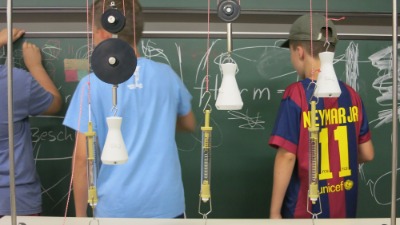School Activities
- Austria,Tyrol
- 2008

| Time frame | |
| Categories | |
| Level of Schools | |
| External Partners | |
| Type of Schools | |
| URL | |
| Number of Schools involved | |
| Number of Schoolheads involved | |
| Number of Teachers involved | |
| Number of Students involved | |
| Number of Parents involved | |
| Number of External Partners involved |
The “Junge Uni” (Children´s University) is committed to science education of children and youngsters. The “School Activities“ promote the meeting between researchers and pupils of all ages during school time. School classes can either come to the university and attend a specific workshop, or if they wish, the Young University can also come directly to the schools and transform the school building into a place of science.
It is so inspiring to see how children are excited when science, technology and research come close to them and are easily available. Children get into contact with scientists.
Sometimes there is a special motto , i.e. climate change;
Sometimes a special topic is introduced, e.g. climate change
